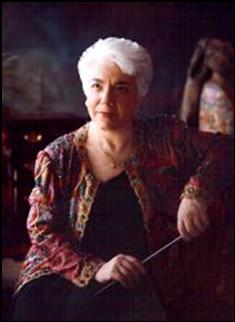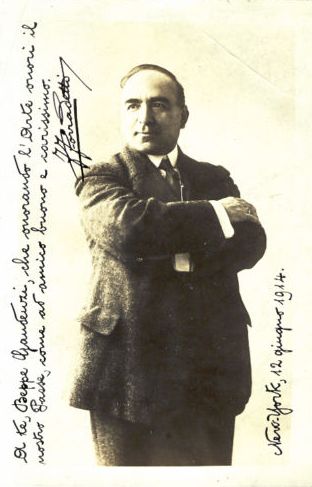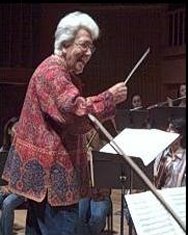 BD
BD| The American conductor, Fiora Contino,
was born into an eminent musical family. Her father, Ferruccio Corradetti,
was a leading baritone at La Scala and other principal European opera houses.
She graduated from Oberlin College with a Bachelor of Music degree in piano.
She furthered her musical training in Europe studying conducting at the Conservatoire
Americain in Fontainebleau and the Ecole Normale in Paris with renowned pedagogue
Nadia Boulanger, and at the Akademie Vienna with Hans Swarowsky. She then
earned a Master's Degree, with distinction, and a Doctorate of Music in conducting
from Indiana University School of Music. She was awarded the 1960 Premier
Prix Hors Concours, cum laude from the Conservatoire in the field of conducting. A respected educator, Fiora Contino has held teaching positions at Hillsdale College, Smith College, and Mount Holyoke College, as Director of Opera and Choral Activities at Bowling Green State University, and as principal conductor and Chairman of the Choral Department at Indiana University. She also served at Peabody Institute, and The University of Texas at Austin. Fiora Contino has conducted opera performances for Aspen Musical Festival, Memphis Opera, Fort Worth Opera, Spring Opera Theater of the San Francisco Opera, Anchorage Opera, and the Teatro Grattacielo at Alice Tully Hall in New York City. Her performance of Puccini's Madama Butterfly with the Pittsburgh Symphony Orchestra, was greeted by the Philadelphia Evening Bulletin as "...magnificent, moving and of the very first order. Fiora Contino towered over everything as the conductor and music director. She held everything together with a baton that was sharp and in clear control of a magnificently coordinated performance. Her presence would do honor to any opera house in the world." She has led many productions for the Memphis Opera, including a performance of Puccini's Turandot with Birgit Nilsson. Fiora Contino has been a regular conductor at the Temple University Music Festival in Ambler, Pennsylvania and Director of the Choral Institute at the Aspen Music Festival. She has also led performances with the symphony orchestras of New Orleans, Hartford, Baltimore, Memphis, San Francisco Symphony Orchestra and San Antonio. New York columnist Byron Belt wrote of her in the Sunday Press, “She is too little known, but Ms. Contino is certainly one of the outstanding women conductors of our day - and we mention the sex…to underscore the fact because a man of her superlative gifts would surely be an international superstar today.” |
 BD: They’ll want to luxuriate?
BD: They’ll want to luxuriate? FC: My father [shown in photo at right] was a very well
known singer at the turn of the century. So I come from an operatic
background, and language has always been easy for me.
FC: My father [shown in photo at right] was a very well
known singer at the turn of the century. So I come from an operatic
background, and language has always been easy for me. BD: Even if you think that it is not a worthy opera?
BD: Even if you think that it is not a worthy opera?This interview was recorded at her hotel in Chicago on May 8, 1990.
Portions (along with recordings) were used on WNIB later that day.
Permission granted to Joan Whittemore to use portions in her
book Wisdom, Wit and Will: Women Choral
Conductors and their Art, published in 2009. The
transcription was posted on this website in 2013.
To see a full list (with links) of interviews which have been transcribed and posted on this website, click here. To read my thoughts on editing these interviews for print, as well as a few other interesting observations, click here.
Award - winning broadcaster Bruce Duffie was with WNIB, Classical 97 in Chicago from 1975 until its final moment as a classical station in February of 2001. His interviews have also appeared in various magazines and journals since 1980, and he now continues his broadcast series on WNUR-FM, as well as on Contemporary Classical Internet Radio.
You are invited to visit his website for more information about his work, including selected transcripts of other interviews, plus a full list of his guests. He would also like to call your attention to the photos and information about his grandfather, who was a pioneer in the automotive field more than a century ago. You may also send him E-Mail with comments, questions and suggestions.